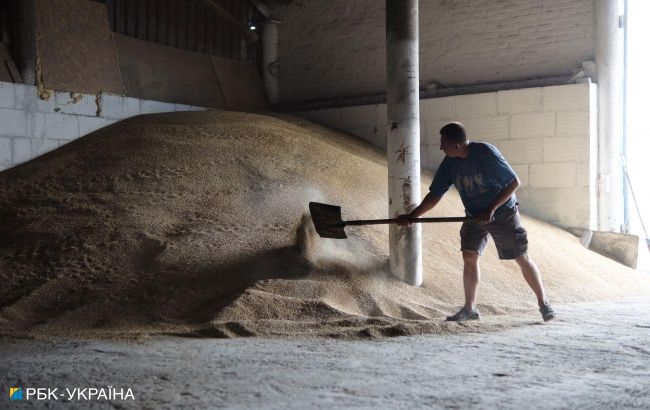Grain imports from Russia and Belarus nearly halted in Lithuania
 Archive photo: Grain imports from Russia and Belarus nearly halted in Lithuania (Vitalii Nosach, RBC-Ukraine)
Archive photo: Grain imports from Russia and Belarus nearly halted in Lithuania (Vitalii Nosach, RBC-Ukraine)
Enhanced control over the import of grain from Russia and Belarus to Lithuania has nearly halted its import, stated the director of Lithuania's State Food and Veterinary Service, Audronė Mikalauskienė.
"After March 18, we have observed a 95% reduction in imports from Russia and Belarus to Lithuania," she said.
Additionally, the official added that there is an increase in the import of agricultural products from Russia and Belarus to Lithuania for further export to other EU countries.
The source clarified that since March 18, the relevant service in Lithuania has been inspecting every wagon or vehicle carrying grain imported from countries of increased risk. This includes Russia, Belarus, and the occupied territories of Ukraine. This is necessary to verify the origin of the grain.
Part of the production from Russia and Belarus was not allowed into Lithuania
During the first month of intensified inspections, 38 trucks carrying 1068 tons of feed from Russia and Belarus were checked. Last week, no batches of feed intended for the Lithuanian market were found.
Furthermore, since March 18, no Russian and Belarusian grain and its processed products for final consumption have been imported into Lithuania. Six more trucks with feed from Russia and 15 from Belarus were turned away at the border due to document discrepancies.
Sanctions against agricultural products from Russia
Some EU members have begun calling for restrictions on Russian and Belarusian grain imports. Additionally, individual countries have implemented bans at the national level. In February, Latvia legislatively prohibited the import of Russian grain.
Later, agriculture ministers from Lithuania, Latvia, Estonia, Poland, and Czechia proposed to the European Union to ban grain imports from Russia and Belarus.
As a result, the European Commission proposed imposing tariffs on grain imports from the territories of Russia and Belarus to restrict the revenues of Moscow and its allies, as well as to appease farmers who have been protesting for months against cheap imports.

